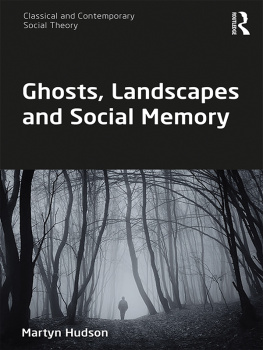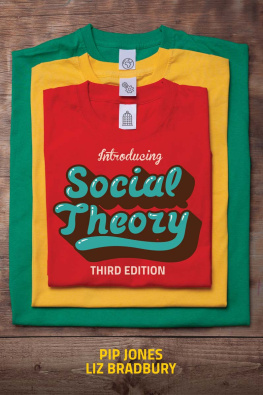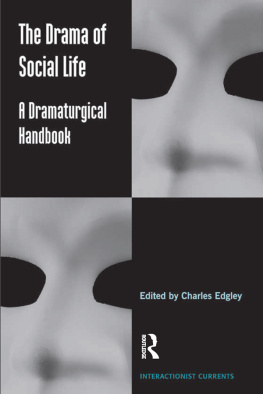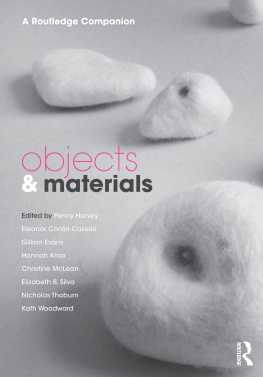
Visualising Worlds
This book examines the social production of our world, of the worlds of the past and of the worlds of the future, considering the ways in which worlds are created in both actuality and imagination. Bringing together central concepts of classical sociology, including social change, transformation, individuation, collectivisation and human imagination and practice, it draws lessons from the collapse of Graeco-Roman antiquity for our own world of virus and ecological disasters, considers the genesis of capitalism and intimates its ending. Rooted in classical sociology yet challenging its traditions and objects of study, Visualising Worlds: World-Making and Social Theory adopts new ways of thinking about visuality, aesthetics and how we see social worlds, and how we then begin to build them. As such, it will appeal to scholars across the social sciences with interests in social theory, historical sociology, cultural studies, critical theory, archaeology and the emergence, change and collapse of civilisations.
Martyn Hudson is lecturer in art and design history at Northumbria University, Newcastle, UK. He is the author of Visualising the Empire of Capital, Critical Theory and the Classical World, Species and Machines, Ghosts, Landscapes and Social Memory and The Slave Ship, Memory and the Origins of Modernity.
Visual Modernities
Edited by Martyn Hudson
Northumbria University
The sociological imagination of modernity is entangled with our senses and, primarily, with vision, yet the process of being able to see something is often extraordinarily complex. Marxs attempt to visualise commodities, Durkheim on totems of religious life, Simmel on money and the metropolis and Elias on social taste are all projects which attempt to see beyond the empirical and into levels of abstraction and immateriality that lie beyond the senses. Visualisation is part of the making of modernity and a response to it. This series explores and elaborates upon our experiences of modernity. It offers ways of seeing from the margins of our world and from its exemplary sites of industry and urbanisation. Grand narratives of human history mix with micro-histories that are embedded across our globe. Using multi-disciplinary methods, it seeks to expand upon our knowledge of global and local visual cultures, whether in architecture, painting, photography, theatre, film and other cultural forms. Examining the material and the tangible as well as the immaterial and the imaginary it aims to offer the best of so-ciological thinking and thought: literally re-visioning our social world.
Visual Modernities welcomes new studies that have visualisation at their heart and embeds new ways of perceiving our shared world and our multiple and complex experience of modernity. It seeks to publish works that are innovative, multi-disciplinary in scope and which challenge and rupture the classical social sciences with new ways of looking at method, theory and our social futures.
Titles:
Art, Critical Pedagogy and Capitalism
Paul Alexander Stewart
Pandemics, Authoritarian Populism, and Science Fiction
Medicine, Military, and Morality in American Film
Jeremiah Morelock
Visualising Worlds
World-Making and Social Theory
Martyn Hudson
Visualising Worlds
World-Making and Social Theory
Martyn Hudson
First published 2022
by Routledge
2 Park Square, Milton Park, Abingdon, Oxon OX14 4RN
and by Routledge
605 Third Avenue, New York, NY 10158
Routledge is an imprint of the Taylor & Francis Group, an informa business
2022 Martyn Hudson
The right of Martyn Hudson to be identified as author of this work has been asserted by him in accordance with sections 77 and 78 of the Copyright, Designs and Patents Act 1988.
All rights reserved. No part of this book may be reprinted or reproduced or utilised in any form or by any electronic, mechanical, or other means, now known or hereafter invented, including photocopying and recording, or in any information storage or retrieval system, without permission in writing from the publishers.
Trademark notice: Product or corporate names may be trademarks or registered trademarks, and are used only for identification and explanation without intent to infringe.
British Library Cataloguing-in-Publication Data
A catalogue record for this book is available from the British Library
Library of Congress Cataloging-in-Publication Data
Names: Hudson, Martyn, author.
Title: Visualising worlds : world-making and social theory / Martyn Hudson.
Description: Abingdon, Oxon ; New York, NY : Routledge, 2021. |
Series: Visual modernities | Includes bibliographical references.
Identifiers: LCCN 2021008572 (print) | LCCN 2021008573 (ebook) | ISBN 9780367681654 (hardback) | ISBN 9780367681647 (paperback) | ISBN 9781003134503 (ebook)
Subjects: LCSH: Sociology--Philosophy. | Civilization. | Culture. | Critical theory. | Visual sociology.
Classification: LCC HM585 .H83 2021 (print) | LCC HM585 (ebook) | DDC 301.01--dc23
LC record available at https://lccn.loc.gov/2021008572
LC ebook record available at https://lccn.loc.gov/2021008573
ISBN: 978-0-367-68165-4 (hbk)
ISBN: 978-0-367-68164-7 (pbk)
ISBN: 978-1-003-13450-3 (ebk)
DOI: 10.4324/9781003134503
Typeset in Bembo
by MPS Limited, Dehradun
Contents
Preface: World-making
Groundwork: Origins of worlds, space and time
Imagining Neverlands
The dark centuries
Beowulf and the Beo-Monde
Building monsters
Endwork: Second to the right, and straight on till morning
References
Index
I have discussed these ideas with friends and colleagues over a long period of time including Emily Hesse, Baz Nichols, Gavin Parry, Liv Carder, Ted Foster, Paul Christon, Kay Hepplewhite, Tanya Wyatt, Vic Wood, Ben Reche, Mick Garratt, Gill Hale, Sam Garratt, Matt Kelly, Siobhan Kattago, Elinor Morgan, George Vasey, Gwilym Williams, Rachel Hann, Gavin Butt, David Petts, John Bowers, Yael Reicher, Emmanuel Tzwern, Julie Crawshaw, Susan Ashley, Lesley Twomey, Andrea Phillips, Justin OShaugnessy and Ysanne Holt. It was Eileen Joy who really cracked open the abyss of the early medieval to me and taught me about the time of monsters in the Dark Ages in a period when I was focused on Greek antiquity. Almost the entirety of my thought-process has been shared through the years with Neil Jenkings: we have read together, thought together. Thanks to Sean Breadin for all of his insights into the Green Man and foliate heads. Baz Nichols opened up the imaginative space of the dark world to me and helped me work there. Emily Hesse was a profound source of love, support and thought in her own studies of ceramic and aceramic worlds of the anthropocene and in our life. Liv Carders love and creative practice always inspires us.
I would like to thank the AnMor collective and the Echtrai project for offering an existential home to develop these ideas and specifically Baz Nichols and Kerri N Dochartaigh. Thank you to Victoria Horne and the members of the









